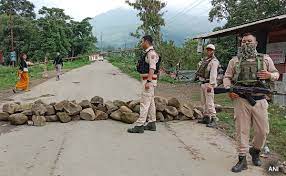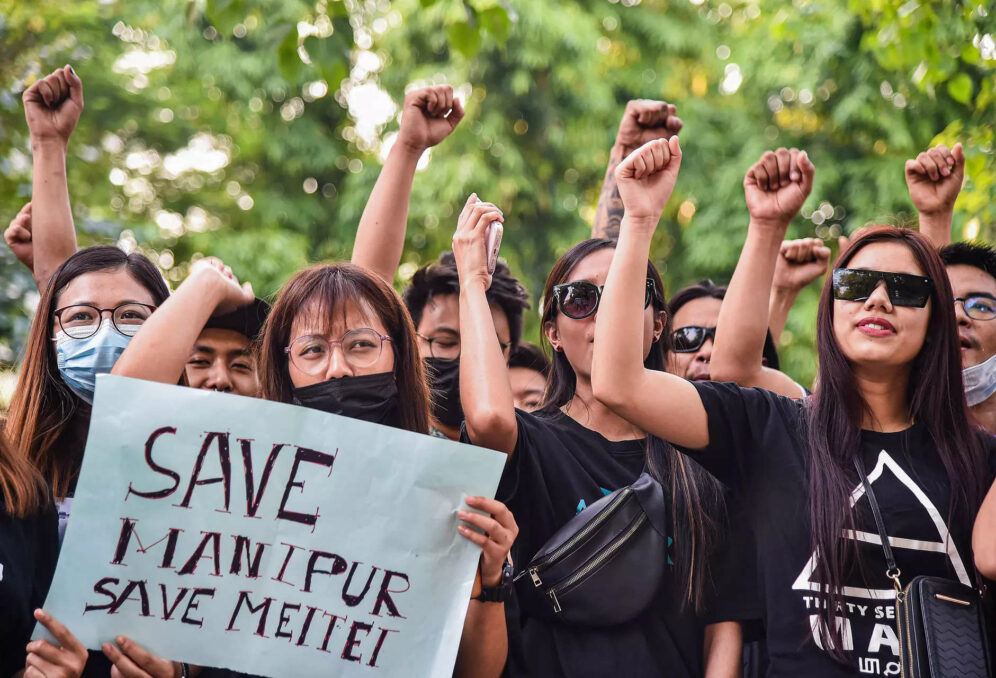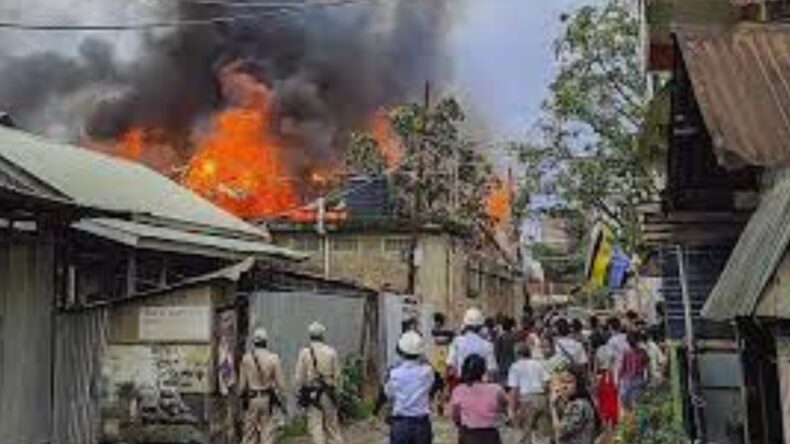This Sunday morning the Spear Corps of the Indian Army launched a covert operation to apprehend 12 hidden Kanglei Yawol Kanna Lup (KYKL) cadres along with arms and ammunition. However, the process could not succeed due to the presence of a woman-led mob which compelled the security personnel to take a step back and treat it delicately. To avoid using force and likely casualties that might arise, the 12 members were handed back to the local leader, and only the arms were seized.
More About the Mission:
A mob of around 1200-1500 people flooded the target area, led by women and the local leader. They prevented the security forces from going through. Additional reinforcements were prevented from reaching there by vigilante groups and mobs. Bridge planks had been removed to delay the return of participating troops back to Myanmar. Repeated requests to the aggravated group to let the people carry on with the mission as per law did not yield any positive results. A mature decision was taken by the operational commander to not risk civilian lives in the mob. This was established to prevent collateral damage from the present agitation in Manipur.

The mission was carried out based on specific intelligence received in Itham village in East Imphal. A barrier of soldiers was arranged before the search to prevent hardships for the other locals. Lt. Col. Moirangthem Tamba, the mastermind of the 2015 Manipur ambush, is amongst the captured cadres. United Liberation Front of Western South East Asia (UNLFW) separatists had ambushed a military convoy which resulted in the death of 18 soldiers of the Indian Army and severe injuries to more.
History:
KYKL is a banned Meitei militant group that has been involved in several attacks including the 2015 ambush mentioned above. Meiteis are a tribe that accounts for about 53% of Manipur’s population and are mostly found in the Imphal Valley. Tribes Nagas and Kukis make up another 40% of the people and reside in the hills. These communities have been in a constant passive-aggressive state since early May and more than 100 people have lost their lives in the ethnic violence between Meitei and Kuki communities.

The first clash broke out after a Tribal Solidarity March was organized in the hill districts to object to Meiteis’ demand for Scheduled Tribe status under Articles 342 and 366 of the Constitution of India. Violence quickly enflamed the state and caused tens of thousands of people to flee from their burning homes into jungles and across state borders. The concerned authorities set up a curfew and suspended the internet, all the while pumping in additional members to create a break in the spiralling altercations. But tensions were simmering for much longer over the eviction of Kuki villagers from reserve forest lands by the government.
Even after the British empire transferred administrative control of the region to the government of India, there has been strife in the North East for a very long time. The violence has, however, significantly decreased over the past few decades, and the Indian state has increasingly asserted its authority.
Aftermath:
The army has issued an appeal to the people of Manipur to be compliant and assist them with maintaining law and order to nurture peace and stability in the state. This is not the first time that the subject of female-led mobs impeding security personnel’s search operations has been raised. Incidents over the past week have revealed similar reports. Earlier this month the Central Government had formed a three-member judicial inquiry panel to investigate this matter. The Indian Army has been reportedly using unmanned aerial vehicles to monitor these mobs.













